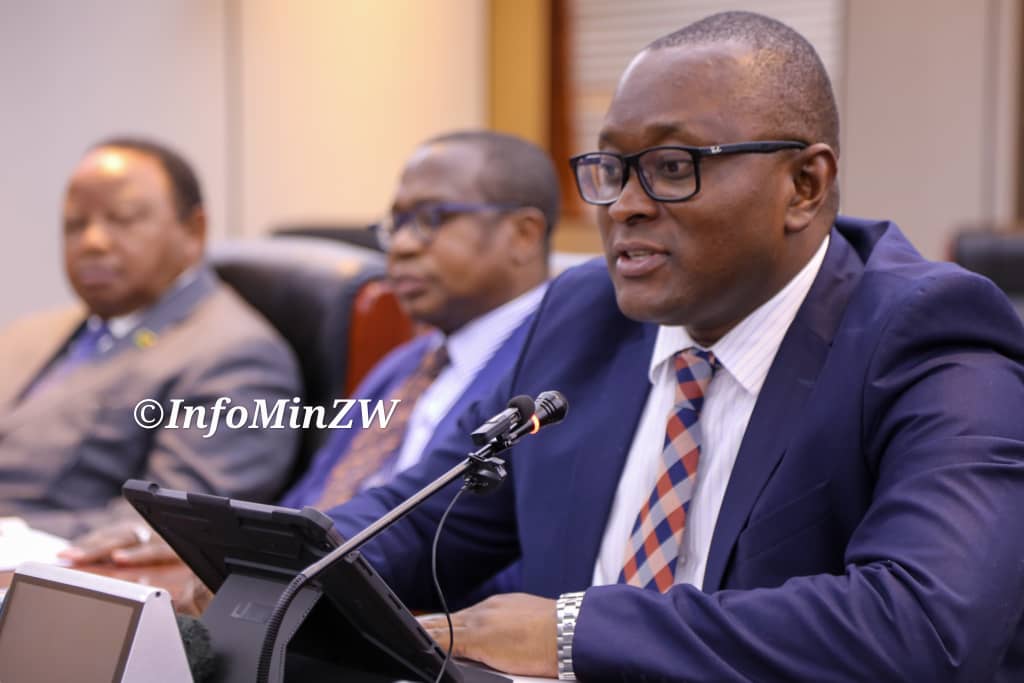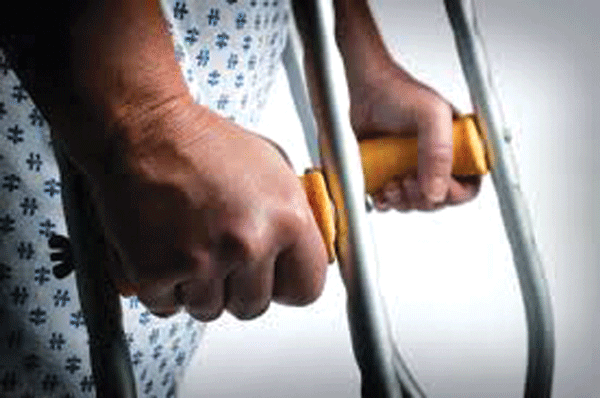Media’s role in focusing on HIV and AIDS
Share

By Fortunate Gunde
LAST week’s Mashonaland West Province’s National AIDS Council (NAC) held a workshop for journalists at Chinhoyi University of Technology (CUT) hotel in Chinhoyi to enlighten members of the media that they have a critical role to play in focusing on the fight against HIV and AIDS. This workshop at CUT Hotel ran under the theme: ”Let communities lead”.
Speaking at the workshop Minister of Information, Publicity and Broadcast Services, Dr Jenfan Muswere, said that the media have a role to play in national development, in health matters and in nation building, given the criticality of the health of the nation’s population.
“It defines the current circumstances, challenges, opportunities resilience, dedication and commitment of Zimbabweans; the health of the nation also defines the future of our country and journalists have a role to play, as we journey towards the upper middle-income society by the year 2030.
“Currently in Southern Africa, Zimbabwe has done extremely well to combat, to reduce the prevalence of HIV and AIDS in our country, and NAC has credited part of the success to the role of the media in raising awareness and educating, and informing the population of Zimbabwe. The role of the media in articulating critical issues, whether it’s the transmission of HIV and AIDS, to tackle the most important aspect in terms of stigmatisation and in ensuring drugs provision, ensuring that you leave no one and no place behind, as the total population of Zimbabwe is knowledgeable about HIV and AIDS,” said the Minister.
Knowledge is power and education is a key and education is being supported through a deliberate segmented approach both in English and in other important local languages, the Minister stressed.
The media was challenged to articulate with ease the health solutions that are available in country for the country to be able to achieve success stories in terms of HIV and AIDS prevention in the country.
The current challenge the country faces is cholera and the media fraternity took a deliberate step to concientise the population, raise awareness, inform and educate in order to bring about behavioural changes, focusing primarily on hygiene. “This Tuesday, Cabinet received a report from the Ministry of Health and Child Care, which declared 10 districts free from cholera. All these success stories are mainly because of the role of the media, the role of the medical teams that has worked with members of the Fourth Estate, to be able to communicate, to be able to generate, information and statistics, working closely with the Ministry of Health and Child Care.”
Dr Muswere encouraged the media to play a critical role in disseminating information in order to fight pandemics.
He acknowledged the role of the media in being at the forefront of fighting cholera by reporting accurately and soberly. The media had also helped, through its reportage, helped the country to achieve the 95/95/95 target of reducing the impact of HIV/AIDS pandemic, while the media had also helped Zimbabwe record low deaths during Covid-19.
The Joint United Nations Programme on HIV/AIDS (UNAIDS) established the 95-95-95 targets, whereby 95 percent of people living with HIV should be diagnosed, 95 percent of those diagnosed with HIV should be receiving antiretroviral therapy (ART), and 95 percent of all those receiving ART should achieve viral suppression.
The Minister encouraged the media to continue playing a pivotal role in disseminating information in a manner that would help the country to overcome future challenges. Dr Bernard Madzima, the National Aids Council Chief Executive Officer, said that proper flow of information required mutual partnerships between the media and his organisation. “That partnership should facilitate deliberate sharing of accurate information as well as responsible reporting, spurred on by national interest and the pursuit of a development agenda anchored on the ideals of the National Development Strategy 1,”he explained.
Kensington Marufu, who is living with HIV suggested that journalists should not report as if HIV was still a danger to the communities. They should, he suggested, make people aware that HIV was just a way of life, and a person could live with it and also that there was nothing wrong living with HIV. A person living with HIV was just the same as any person and was capable of doing anything.
“I take myself as an example; even though I took long to achieve certain levels, I have done what most people without HIV failed to do. I went to school for ‘A’ Level and I was the highest performer. So, there is nothing wrong with it. I have lived long enough, some people thought that I was going to die before them, but I have out-lived them, and there were some people who looked down upon me.
“So, I feel journalists must undo the stereotypes that they themselves set. Journalists are the ones who set the first stereotypes we are living with. Stigma and discrimination was brought through the media. It is the media that comes, brings out stigma, discrimination and other stereotypes,” said Marufu.
The media must aim to provide more information because it contributes a lot towards people’s understanding of certain things.
“I will take an example of Covid-19; it was the media that brought out a lot of information to the people and they put fear into people and the like. So, it is a critical role for the media to undo what they have done and they have the power to change the mind of the people. I think there should be positive reporting, reporting towards awareness, proper information so that people who are hiding can come out,” said Marufu.
Daphne Machiri, who is a freelance journalist from Harare, said that the workshop had been an eye-opener and helpful in acquiring the necessary skills that are needed when reporting on HIV and AIDS.
“The power of the media is also manifested when reporting on HIV and AIDS. The media can contribute in educating those who are HIV-negative to take care of their health and to avoid contracting the virus, while at the same time learning to live with friends, relatives and neighbours who are positive.
“Likewise, the media can help those who are positive to live a better life with this condition and to get the best out of life. As journalists, we should be practising ethical, and responsible reporting, providing the correct facts on HIV and AIDS, for society to make informed decisions. The media is also there to demystify the myths about HIV and AIDS.”









